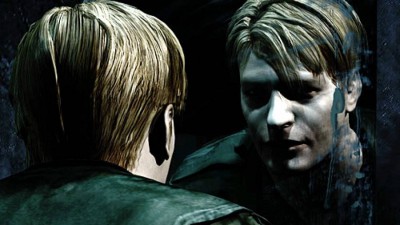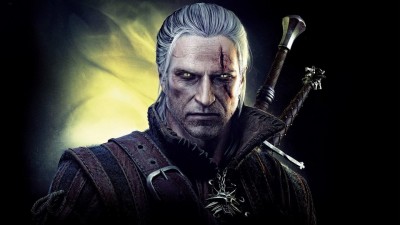Hideo Kojima has been teasing at episodic gaming in Silent Hills, something that I’m not necessarily certain is appropriate for the stories traditionally associated with the franchise. Ultimately, this opinion is formed by the assumption that Kojima is seriously considering this as a viable means of storytelling, and not an off-the-cuff remark. That is still viable, given his penchant for deliberately misleading gamers in the past so he could pull the rug out from underneath their expectations - Metal Gear Solid 2, for instance.
Assuming that Silent Hills really is under serious c onsideration as an episodic story, I’m intrigued about the reasoning that led to such a decision. From a cynical point of view, it’s an easy cash-grab on the Silent Hill franchise. The critical and fan-favorite might of the older Silent Hill games firmly roots the series as a horror king of cash-grabs, just behind Resident Evil.
onsideration as an episodic story, I’m intrigued about the reasoning that led to such a decision. From a cynical point of view, it’s an easy cash-grab on the Silent Hill franchise. The critical and fan-favorite might of the older Silent Hill games firmly roots the series as a horror king of cash-grabs, just behind Resident Evil.
But, if we take money out of the equation, the idea of an episodic Silent Hill is quite interesting: Silent Hill has always been an objective, fearsome enemy. The town is vile and vicious, but it’s never waxed philosophy. Like the Dionaea House, it lures its victims in and never lets them out. It’s a force of nature.
Talking about the people in Silent Hill rather than the driving force behind them could be a viable direction to look at. After all, several people in a bad situation has been a staple of Telltale Games’ The Walking Dead series. And as the critical and sales numbers show, it’s proven to be extremely effective.
Also, a Silent Hill game split up into affordable chunks could financially temper the cost of development. Considering its graphical fidelity, if they’re approaching this from a long-term perspective, it makes sense. And I’m sure most people will agree: Silent Hills looks damn good. It ain’t gonna be cheap to make.
But my core concern lies with the question on whether Silent Hills needs an episodic format. Silent Hill has always been episodic in a lot of its storytelling. The series looks at several people as they face the town, and the way that they develop is cleanly separated from the others. You oftentimes find change and development in chunks and blocks, compared to a lot of more cohesive games.
Additionally, the series is highly introspective - seen most keenly in Silent Hill 2‘s examination of survivor’s guilt and grief. Character development in episodic stories usually moves alongside the overarching plot: we’re given snippets and pieces of these characters, but it takes several episodes for them to show substantial change or progression.
The town is the world’s worst psychiatrist: Silent Hill takes the thoughts, fear, and concerns of its inhabitants and coats it in a heavy dose of fear. Character development is in-your-face and blatant. Each corner is oozing with introspectiveness. Stretching development out risks a change in the development format, where small snippets depend on words and major actions instead of the minutiae that pepper the town. It changes the storytelling structure, which I’m not sure is something Silent Hill really needs.
It’s also important to remember that episodic storytelling “reboots” itself with each new episode. Playing and replaying is a constant when studios release episodes with gulfs of time in between. In providing episodic storytelling, you lose out on a clear holistic structure, something that has always been a strength of the older Silent Hill games.
People aren’t fond of Silent Hill the series, but of specific games in the series, and I think the distinction is critical. Silent Hill games have always revolved around push and pull factors revolving around  a single character. As a result, the town manifests itself based on those factors. The first was a stock occult story, but Silent Hill 2 and 3 developed intricate webs of unresolved, enthralling backstories. The Room and everything afterwards didn’t pull off that same intricacy with the same level of punch, but it still tried - Shattered Memories on the Wii even included a psychology test at the start, and molded itself (or attempted to) around your answers. Each game is about a specific person, and how they deal with their personal demons.
a single character. As a result, the town manifests itself based on those factors. The first was a stock occult story, but Silent Hill 2 and 3 developed intricate webs of unresolved, enthralling backstories. The Room and everything afterwards didn’t pull off that same intricacy with the same level of punch, but it still tried - Shattered Memories on the Wii even included a psychology test at the start, and molded itself (or attempted to) around your answers. Each game is about a specific person, and how they deal with their personal demons.
Episodic gaming removes this cohesion in favor of a shotgun approach; doing so limits the amount of time each character has to evolve. It also changes the nexus from the person to the town itself. Consistent and persistent antagonism of a group of people or the same person means that Silent Hill has to keep throwing out obstacles to maintain the story. This shifts the antagonist and central character to the town. I’m not sure if that’s what Silent Hill was going for in… well, any of them.
Of course, these are just first impressions, and after more thought and hands-on experience, my opinion may change. It’s still very early days, and Silent Hills is likely still a very long way away before any of us are able to finalize our opinions.



